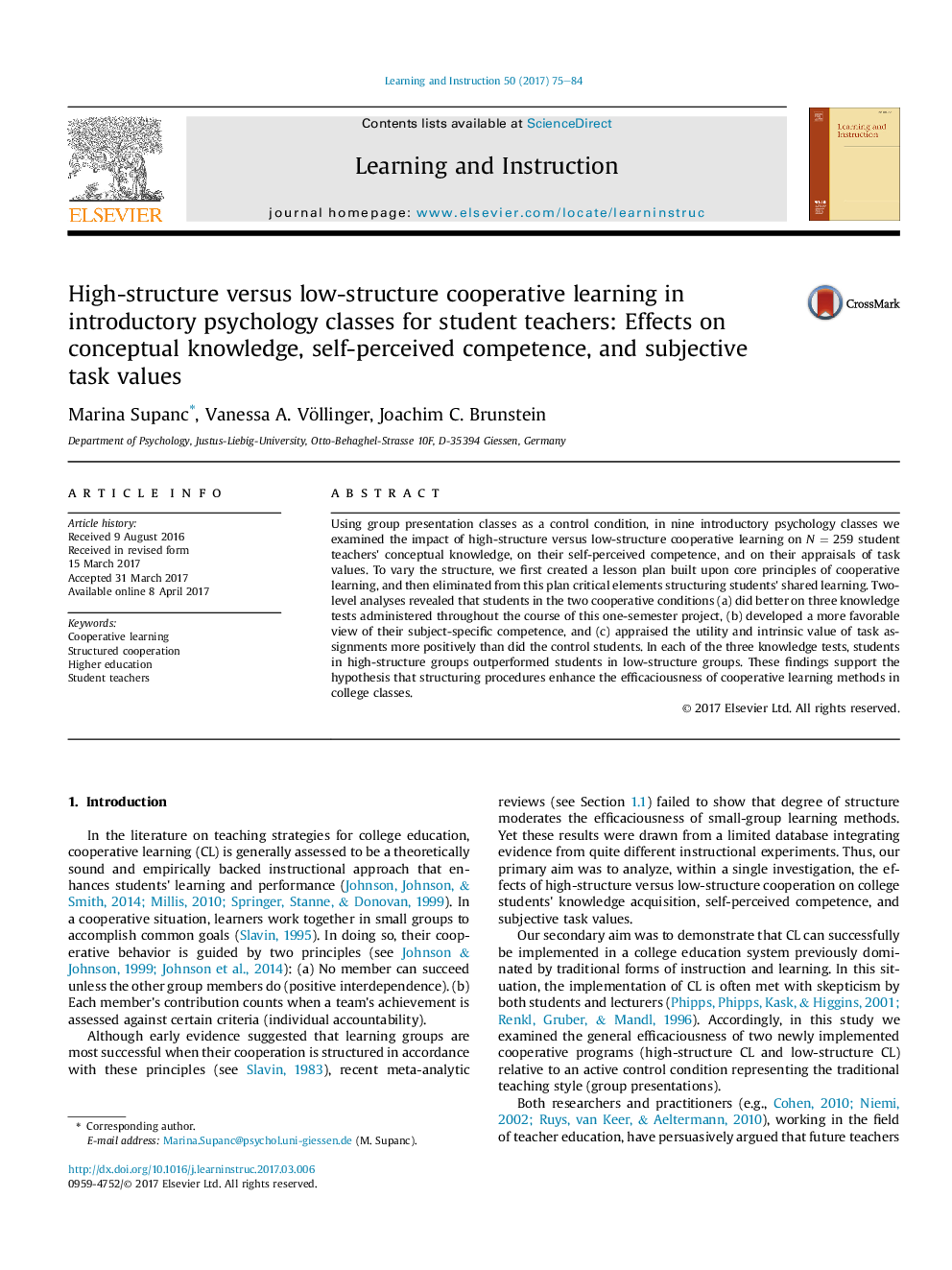| Article ID | Journal | Published Year | Pages | File Type |
|---|---|---|---|---|
| 4940240 | Learning and Instruction | 2017 | 10 Pages |
Abstract
Using group presentation classes as a control condition, in nine introductory psychology classes we examined the impact of high-structure versus low-structure cooperative learning on NÂ =Â 259 student teachers' conceptual knowledge, on their self-perceived competence, and on their appraisals of task values. To vary the structure, we first created a lesson plan built upon core principles of cooperative learning, and then eliminated from this plan critical elements structuring students' shared learning. Two-level analyses revealed that students in the two cooperative conditions (a) did better on three knowledge tests administered throughout the course of this one-semester project, (b) developed a more favorable view of their subject-specific competence, and (c) appraised the utility and intrinsic value of task assignments more positively than did the control students. In each of the three knowledge tests, students in high-structure groups outperformed students in low-structure groups. These findings support the hypothesis that structuring procedures enhance the efficaciousness of cooperative learning methods in college classes.
Related Topics
Social Sciences and Humanities
Psychology
Developmental and Educational Psychology
Authors
Marina Supanc, Vanessa A. Völlinger, Joachim C. Brunstein,
